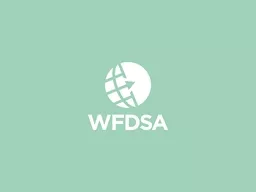PDF-(DOWNLOAD)-Fabricated man: The ethics of genetic control
Author : thadnavarrette24 | Published Date : 2022-08-31
Medicine and Ethics Problems encountered as science makes genetic control of man a real possibility Includes discussions of asexual reproduction of men frozen semen
Presentation Embed Code
Download Presentation
Download Presentation The PPT/PDF document "(DOWNLOAD)-Fabricated man: The ethics of..." is the property of its rightful owner. Permission is granted to download and print the materials on this website for personal, non-commercial use only, and to display it on your personal computer provided you do not modify the materials and that you retain all copyright notices contained in the materials. By downloading content from our website, you accept the terms of this agreement.
(DOWNLOAD)-Fabricated man: The ethics of genetic control: Transcript
Download Rules Of Document
"(DOWNLOAD)-Fabricated man: The ethics of genetic control"The content belongs to its owner. You may download and print it for personal use, without modification, and keep all copyright notices. By downloading, you agree to these terms.
Related Documents














